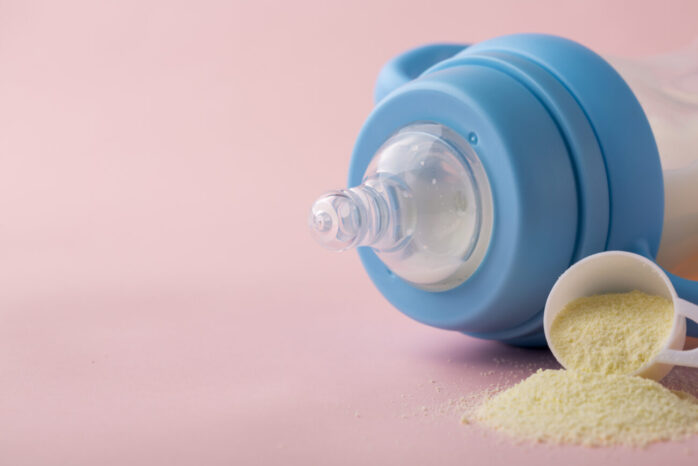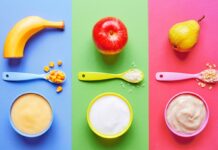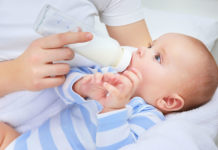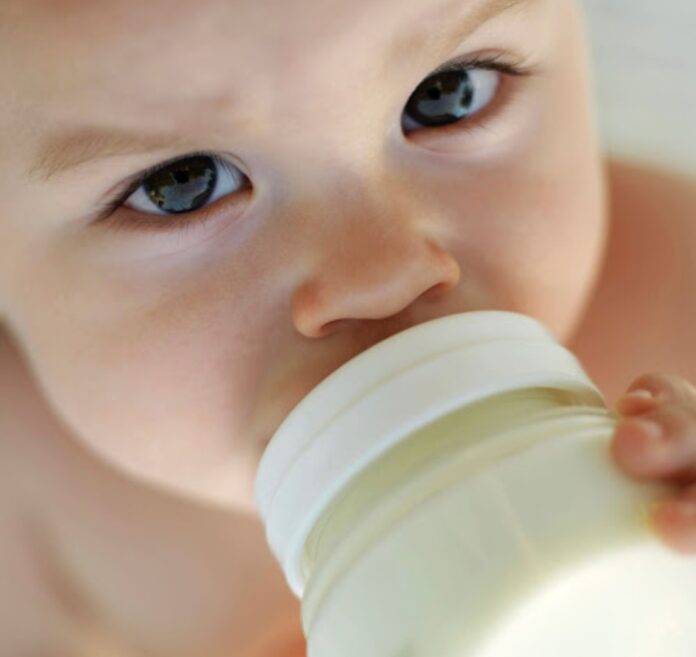
Your little one is about to turn 6 months old. You, like most parents, are wanting to know if you should make the switch to the second stage of European baby formula or if it is best to stick with the stage one formula. Is it even necessary to make the switch to stage 2? Perhaps you don’t even know what European formula or different stages are. Click here to see the whole assortment of European formulas you could choose from and get started on your formula journey.
This article discusses the differences between each stage of European baby formula and why you would want to move up to the next stage as your baby grows. But first, we discuss what to look for in baby formula.

What to look for in Baby Formula
#1 Natural Ingredients
When you are on the search for the perfect baby formula for your baby’s individual needs, choosing the most natural and sometimes even organic ingredients can help. By doing so, you initially eliminate ingredients that could trigger sensitivities in your baby. These sensitivities will appear in gas, irritation, extra spit-ups, rashes, etc. Here are some ingredients you should avoid:
- Glucose Syrup Solids
- Corn Syrup
- Sugar
- Sucrose
- Soy
- Preservatives
- Artificial DHA/ARA
- Synthetic Nutrients
- Dioxin
This is a starter list. As you learn your baby more, there could be additional ingredients that your baby might not tolerate well; for example, some babies have problems with digestion palm oil. Also, your baby may have an inability to process cow’s lactose well and might need a hydrolyzed formula option or an alternative option such as goat’s milk formula.
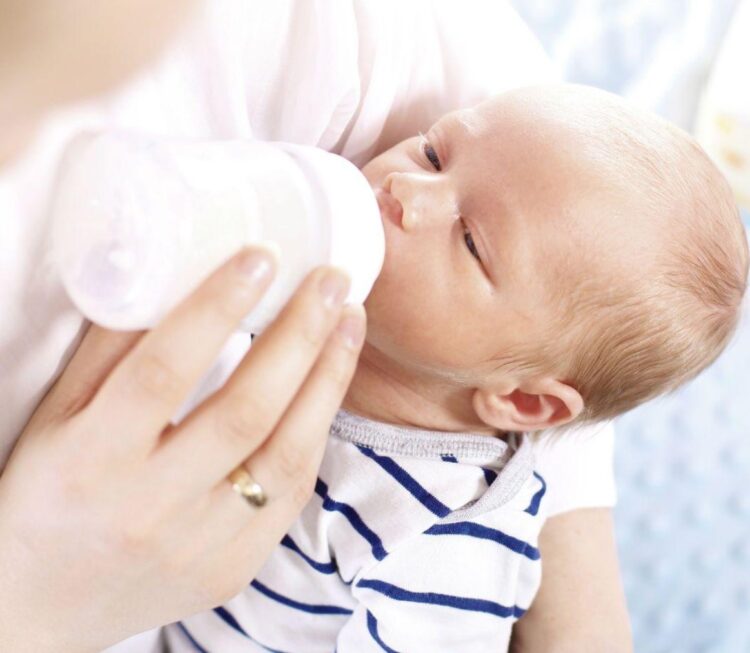
#2 Extra Ingredients
Some parents look for the most basic, bare-bone baby formula for their little ones. And this could be due to medical conditions, or a parent’s peace of mind to keep extra nasties out. In any case, there are some extra ingredients that could be very beneficial for your baby.
- DHA/ARA: Omega 3 fatty acids found in DHA help with eye, brain, and nervous system development. Look out for synthetically made DHA, as the most beneficial form is naturally. For example, fish oil or algae oil (vegetarian friendly) are naturally derived.
- HMO (Human milk oligosaccharides): As it is found naturally in breastmilk, adding it to baby formula can have compounded positive benefits. This can help boost your baby’s immunity and also help their digestive system. Once again, look for natural HMOs added, not lab created.
- Prebiotics/Probiotics: The addition of prebiotics can come naturally in baby formulas with whole milk recipes. You will find probiotics added into some baby formulas as well, and there are formulas with both of these bonuses in them. You can always add probiotics into your baby formula afterwards as well. Both of these added bonuses will help your baby with their gut health – within their digestive system, to include their intestines.
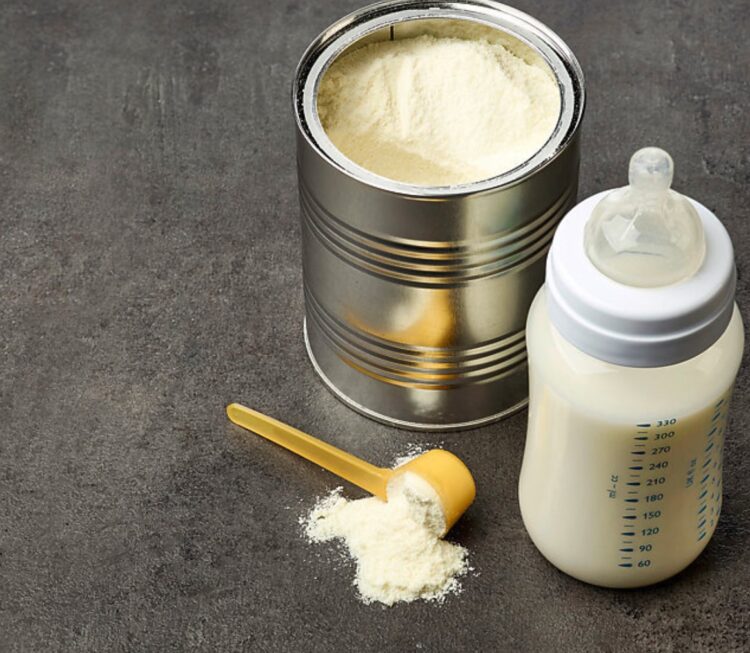
#3 No Heavy Metals
It may seem like a no-brainer that you don’t want heavy metals in your baby food, but that doesn’t mean it is a simple task to achieve. In fact, many of the latest news reports about baby foods have exposed the problem of heavy metals seeping into many of the baby foods.
How are these heavy metals seeping into the foods? The toxins are not filtered or even added to the soil during fertilization and also within animal care. Then the food products end up in a manufacturing process that also allows amounts of these metals to seep into the food.
With adults, the minimal amounts aren’t nearly as concerning, because we have an already developed body and a much greater immune system. Our babies, on the other hand, are extremely sensitive. Any exposure to these elements can have detrimental impacts for the remainder of their lives.
There are four major toxic heavy metals that you need to be highly cautious of:
- Lead: We learned about how lead in the paint caused many problems for babies in the early to mid-1900s, but did you know problems with lead are still prevalent today? Effects of lead poisoning can cause cholic or anemia in babies. As babies develop and have more prolonged exposure, learning disabilities may occur as well since the lead affects cognitive abilities.
- Mercury: If you grew up in the 1900’s you may remember the mercury inside of thermometers. They were very cautious about not dropping them, as the mercury could be very dangerous. This heavy metal also affects cognitive development and can cause problems with your muscles, coordination, and eye/hearing health.
- Arsenic: You have probably heard about how arsenic is used in rat poisoning, so can you imagine it getting into your baby’s food? This metal can completely destroy your baby’s immune system and cause a whole assortment of negative effects like diabetes, cancer, cardiovascular disease, and even skin lesions.
- Cadmium: A little bit less familiar and not talked about, this heavy metal can cause some serious damage. Small amounts of cadmium can affect kidneys, lungs, and bones. In some cases, it may even lead to cancer.
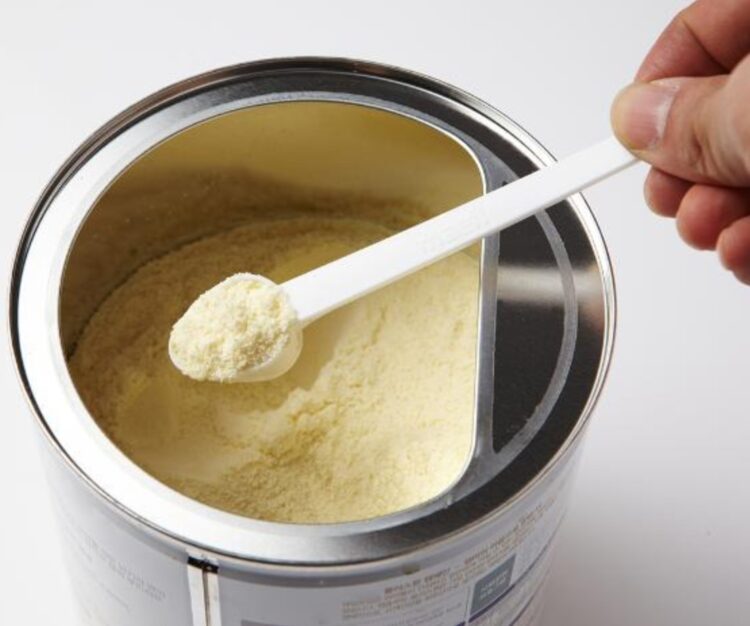
European Baby Formula Stages
In Europe, they take a different approach to baby formula. They created formula stages instead of a one size fits all approach that you see with other country’s formulas.
For example, HiPP Dutch organic baby formula. HiPP Dutch is very similar to breast milk; it has very clean ingredients and comes in stages 1 through 3.
You will never find added sugar, soy, peanut, wheat, pesticides, or chemicals in European baby formulas.
- Stage 1 of European baby formula is for babies 0 to 6 months.
- Stage 2 is recommend for babies 6 months to 12 months.
- Stage 3 is for babies/toddlers 12 months plus.

What Makes Each Stage Different?
Let’s look back at our example, HiPP Dutch. HiPP Dutch stage 1 provides the vitamins, minerals, and nutrients your baby needs in the first 6 months of life. This stage is in its most basic form with only the required vitamins, minerals, and nutrients that your baby needs at this developmental level.
As your baby progresses throughout the stages, the levels of vitamins and minerals change, along with some ingredients (depending on the baby formula brand). An example of a mineral that changes throughout the stages is iron.
The iron level in stage 1 is 0.50mg. This level increases in stage 2 to 1mg and then decreases in stage 3 to 0.90mg. Iron is needed in different leaves as children grow to help with the movement of oxygen throughout the body.
The reason for these changes in iron is due to the need of the child as they age. Babies from birth to 6 months still have stored iron in their bodies until 4-6 months of age. When a baby is 6 months through the first year they need more iron, because they may not be eating solids yet; and if they are eating solids they are usually not eating enough to provide the level of iron necessary for their growth. A toddler on stage 3 would not need as much iron in the formula because they are now getting enough iron from the food they eat.
This same principle applies to many of the other vitamins and minerals in European formula.
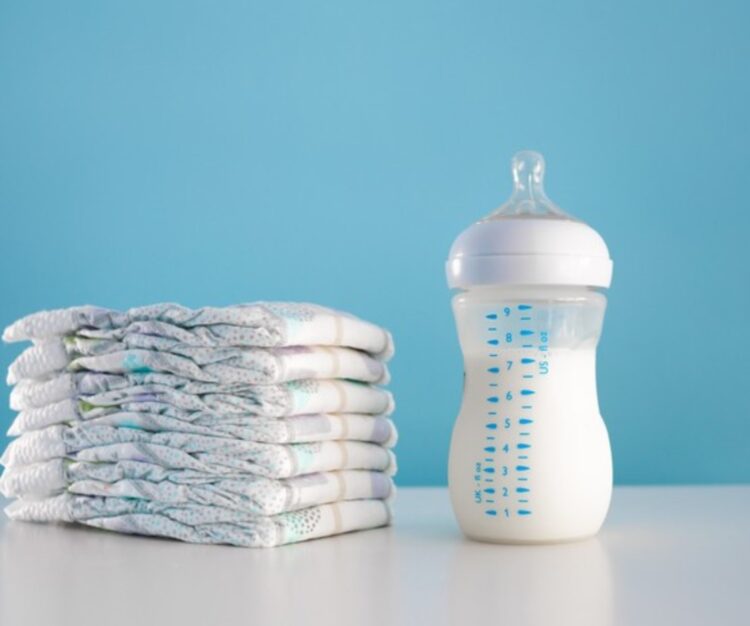
Can You Stay At Stage 1?
The answer is yes!
Some babies might be both breastfed and formula fed. If this is the case, then they wouldn’t need the increase in vitamins and minerals, because they are getting them from two different sources.
Some babies might have certain vitamin or mineral intolerances and pediatricians could recommend not to switch to stage 2 and 3.
Conclusion
Switching stages with European baby formulas is a decision that every parent has to make for their own child. If you feel that your baby is not getting enough vitamins and minerals from the food once they start eating at 6 months, then switching to stage 2 can help.
If your little one needs more vitamins, minerals, and nutrients as a toddler, say because they are a picky eater, stage 3 might be a great option for you.
We are so excited that Europe created stages of formula with the needs of growing babies in mind, so you don’t have to stress about your baby’s development anymore!


